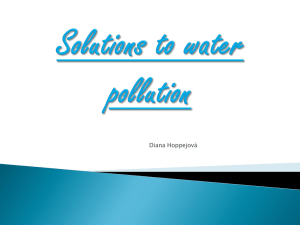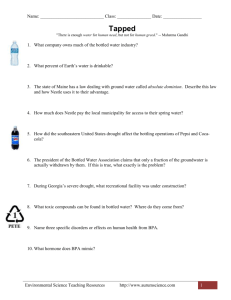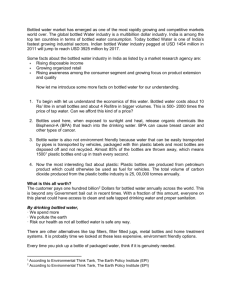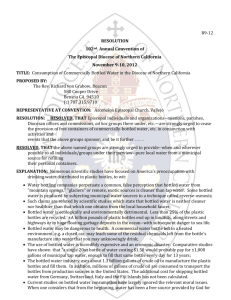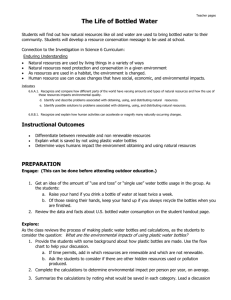Bottled Water Facts
advertisement
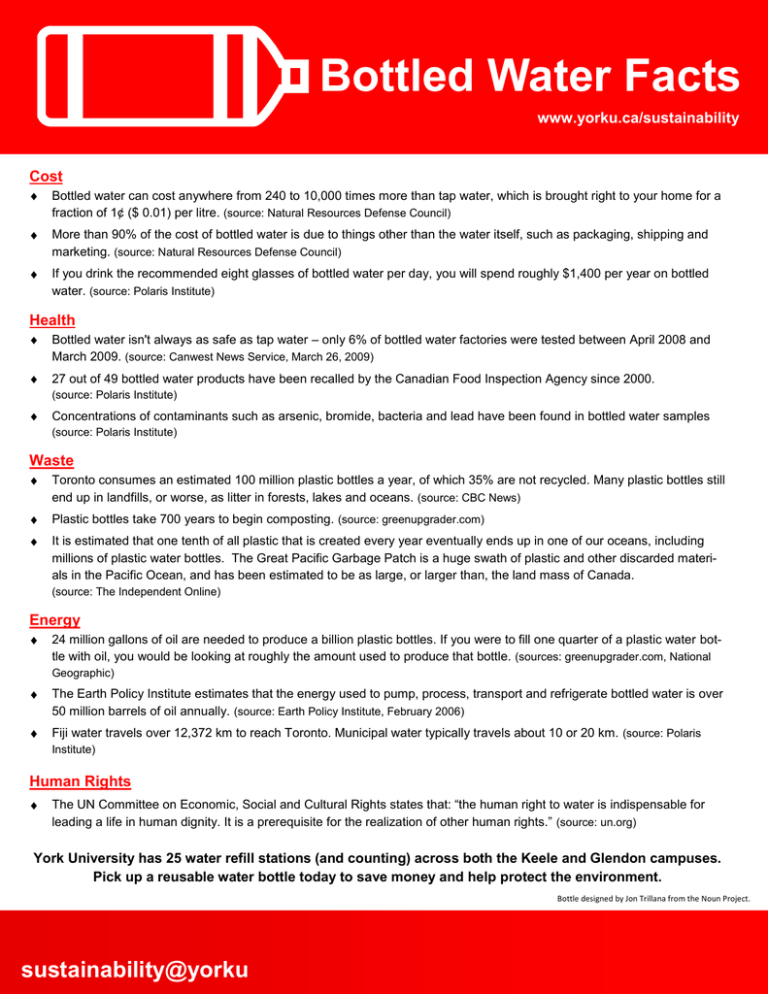
Bottled Water Facts www.yorku.ca/sustainability Cost Bottled water can cost anywhere from 240 to 10,000 times more than tap water, which is brought right to your home for a fraction of 1¢ ($ 0.01) per litre. (source: Natural Resources Defense Council) More than 90% of the cost of bottled water is due to things other than the water itself, such as packaging, shipping and marketing. (source: Natural Resources Defense Council) If you drink the recommended eight glasses of bottled water per day, you will spend roughly $1,400 per year on bottled water. (source: Polaris Institute) Health Bottled water isn't always as safe as tap water – only 6% of bottled water factories were tested between April 2008 and March 2009. (source: Canwest News Service, March 26, 2009) 27 out of 49 bottled water products have been recalled by the Canadian Food Inspection Agency since 2000. (source: Polaris Institute) Concentrations of contaminants such as arsenic, bromide, bacteria and lead have been found in bottled water samples (source: Polaris Institute) Waste Toronto consumes an estimated 100 million plastic bottles a year, of which 35% are not recycled. Many plastic bottles still end up in landfills, or worse, as litter in forests, lakes and oceans. (source: CBC News) Plastic bottles take 700 years to begin composting. (source: greenupgrader.com) It is estimated that one tenth of all plastic that is created every year eventually ends up in one of our oceans, including millions of plastic water bottles. The Great Pacific Garbage Patch is a huge swath of plastic and other discarded materials in the Pacific Ocean, and has been estimated to be as large, or larger than, the land mass of Canada. (source: The Independent Online) Energy 24 million gallons of oil are needed to produce a billion plastic bottles. If you were to fill one quarter of a plastic water bottle with oil, you would be looking at roughly the amount used to produce that bottle. (sources: greenupgrader.com, National Geographic) The Earth Policy Institute estimates that the energy used to pump, process, transport and refrigerate bottled water is over 50 million barrels of oil annually. (source: Earth Policy Institute, February 2006) Fiji water travels over 12,372 km to reach Toronto. Municipal water typically travels about 10 or 20 km. (source: Polaris Institute) Human Rights The UN Committee on Economic, Social and Cultural Rights states that: “the human right to water is indispensable for leading a life in human dignity. It is a prerequisite for the realization of other human rights.” (source: un.org) York University has 25 water refill stations (and counting) across both the Keele and Glendon campuses. Pick up a reusable water bottle today to save money and help protect the environment. Bottle designed by Jon Trillana from the Noun Project. sustainability@yorku
